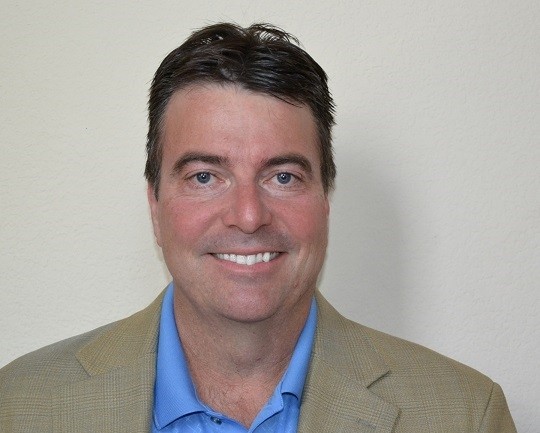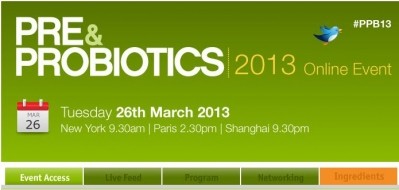Big Interview: Todd Beckman, cofounder and COO of GoodBelly
Consumer education on probiotics critical: GoodBelly founder

The firm rolled out GoodBelly in 2008, a probiotic beverage that claims to promote healthy digestion and can be consumed daily, to effectively replace costly medical visits and prescription medication. Six years on, the firm is on the road to profitability, as the future for probiotics in the functional beverage market looks especially bright.
“Anytime you have a functional product—whether probiotic or other—it takes a lot of consumer education,” GoodBelly cofounder and COO Todd Beckman told FoodNavigator-USA. “You have to drive trial, then drive repeat business. We know we have a good product at this point. Our biggest potential is drilling deeper into the consumer.
"With any good probiotic, consumers can feel the effect of how it works for them. You don’t need biomarkers for probiotics; you feel it in your digestive system. It’s that cause and effect that gets people into the habit.”
Getting ahead in fixing the gut
Beckman, the former president of White Wave Foods, teamed up with his former colleague, White Wave founder Steve Demos (who also created Silk soy milk) to launch NextFoods in 2005. Three years later, the firm launched GoodBelly, a line of soy-free, dairy-free, vegan probiotic juices containing Lactobacillus plantarum 299v—a well-studied probiotic strain formulated for daily intake—aimed at aging baby boomers. Flavors include pomegranate blackberry, strawberry, vanilla chamomile, lemon ginger and coconut water.
“We did a lot of research and put together a little team of guys from the medical, lifestyle and consumer research communities in January 2006 to share ideas,” Beckman said. “The medical guys said, ‘Americans have gut issues. Let’s fix the gut.' The trend guys saw that probiotics were taking off in Asia and Europe and jumped on board. And the consumer research guys said probiotics would trend down to the US eventually. To have all these different groups agree that digestive health is an issue in the US, to come up with that epiphany, was huge.”
The company secured a licensing agreement on the Lp299v strain from Swedish brand ProViva in early 2007, and within the year obtained national distribution at Whole Foods. Currently, GoodBelly is distributed in about 6,000 grocery stores, including Kroger, Safeway, HEB and Wegmans. NextFoods has been sustaining year-on-year growth in the 25-40% range since the rollout, but has yet to reach profitability. “We’re still testing GoodBelly with progressive grocers, even after six years,” Beckman said.
A desination product with a purchase cycle 3 times shorter than Silk
In the early days, the firm targeted the natural foods channel, where the early adopters and more educated consumers tend to fall, in order to determine the mainstream potential of the product.
“We tested in the natural market make sure we had the right product, formulation and price point essentially to prove out the business model. If you have a consumer-winning product but don’t have the right business model, you can't get raw materials and can't scale. We wanted to test first in the natural channel then scale for the more aggressive mainstream channel and build out from there."
Because GoodBelly demands a commitment from the consumer—requiring daily intake for sustained results—the brand has found the most success building loyalty through its 12-day challenge promotion.
“We ask consumers to test the product continuously for 12 days. If at the end they don’t like anything about it, we give them their money back,” Beckman said. “We’ve found that the product is so efficacious, after 12 days, the majority of consumers feel positive about what the product is doing for them, and they become lifelong customers. The purchase cycle is three times shorter than what we had on Silk, which just tells us that people are in it to stay. It becomes a destination product.”
He added that for many customers, there's no competition between taking prescription medication versus consuming a food that helps relieve symptoms. "Once consumers find something that works, they don't want to go back. find From a financial commitment standpoint, it's better to find a food product that will help them not have to take medicine every day."
Through trial and error, NextFoods determined that the best placement of GoodBelly was in the chilled juice aisle as opposed to the yogurt set. The firm initially tested a small juice shot in the yogurt section at a mainstream retailer, which proved to be both confusing to the consumer and priced incorrectly.
“It was not the right strategy,” Beckman said. “We probably didn’t do enough testing in the beginning. There was too much messaging, and it wasn’t the right price point for that set. We pulled out, retested and moved to an upgraded morning juice position next to the orange juice as opposed to the acai and Odwalla, because we're offering your morning juice with an added functional benefit. That message and positioning resonated much better with retailers and consumers.”
‘When we first launched, we didn’t take enough time to really listen to the market for the right signals’
One of the ongoing challenges of scaling up within the functional beverage market is balancing margins and pricing across channels, Beckman said, adding that he thinks GoodBelly scaled too quickly to mainstream at the outset. But the brand's ability to foster strong customer loyalty means it will have legs in an increasingly crowded functional beverage market, he added.
“When we first launched, we didn’t take enough time to really listen to the market for the right signals. We got the initial signals and scaled too quickly to mainstream. You have to resist the urge to jump on those early signals and really verify what consumers tell you, and what retailers and the supply chain tell you. The next step is exponentially more expensive, so make sure you’re ready for it.
We're still a relatively small company trying to rub two sticks together to make a fire, so to speak. But we know this brand is sticky, that it has the right formulation and right price. In this industry, there's always room for one more.”
Invested in pre- and probiotics? Probiota 2014 will explore the prebiotic-probiotic scientific frontier, its evolution and commercial application in food, nutraceuticals, pharmaceuticals and cosmetics across the globe.
The 2-day, 2-stream event –formerly Probiotech and Microbiota - will be held in Amsterdam on February 4-5 next year. Will you be joining your peers there?










